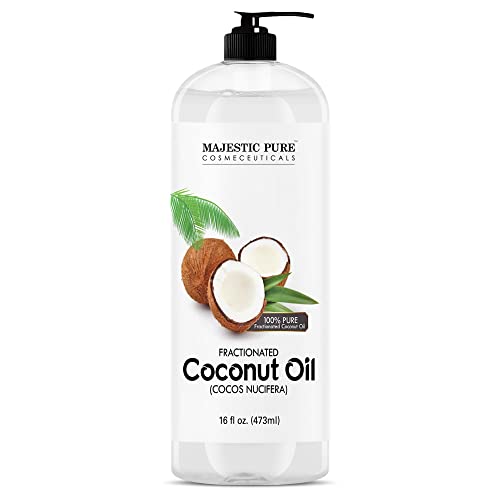How to Choose the Carrier Oils
Hi my friends! I’m Maria Rodriguez from best2buy.reviews. As you know, Carrier oils have many profits. Today, I’m very glad to share with you some informations and guides to choose carrier oils.
- 1. Overview of carrier oils
- 1.1. Jojoba Oil
- 1.2. Coconut Oil
- 1.3. Sweet Almond Oil
- 1.4. Grapeseed Oil
- 1.5. Olive Oil
- 1.6. Avocado Oil
- 1.7. Sunflower Oil
- 1.8. Argan Oil
- 1.9. Hempseed Oil
- 1.10. Rosehip Seed Oil
- 2. Uses of Carrier Oils
- 2.1. Diluting Essential Oils
- 2.2. Massage Therapy
- 2.3. Skincare
- 2.4. Haircare
- 2.5. Aromatherapy
- 2.6. DIY Beauty and Wellness Products
- 2.7. Healing Ointments
- 2.8. Carrier for Medicinal Herbs
- 2.9. Sunscreen
- 3. How to choose Carrier Oils?
- 3.1. Identify Your Purpose:
- 3.2. Consider Skin Type:
- 3.3. Allergies and Sensitivities:
- 3.4. Texture and Absorption Rate:
- 3.5. Therapeutic Properties:
- 3.6. Shelf Life and Stability:
- 3.7. Odor and Personal Preference:
- 3.8. Certifications and Quality:
- 3.9. Cost:
- 3.10. Packaging:
- 3.11. Patch Test:
- 4. In conclusion
Overview of carrier oils
Carrier oils, also known as base oils or vegetable oils, are natural oils derived from various plant sources. These oils are used as a base or dilution medium to carry essential oils and other concentrated substances in aromatherapy, massage therapy, skincare, and various DIY beauty and wellness applications. Carrier oils are essential for diluting essential oils because pure essential oils are highly concentrated and can be too potent or irritating when applied directly to the skin. Carrier oils help to dilute essential oils and ensure safe and effective use.

Here are some common carrier oils and their properties:
Jojoba Oil
Jojoba oil closely resembles the natural sebum produced by our skin, making it an excellent choice for all skin types. It's known for its moisturizing and balancing properties.
Coconut Oil
Coconut oil is popular for its nourishing and hydrating properties. It's solid at room temperature but melts on contact with the skin. It's often used in hair care and skincare products.
Sweet Almond Oil
Sweet almond oil is a light and easily absorbed oil, making it suitable for all skin types. It's rich in vitamins and minerals, making it a good choice for dry and sensitive skin.
Grapeseed Oil
Grapeseed oil is a lightweight, non-greasy oil that's high in antioxidants. It's often used in massage therapy and skincare products due to its silky texture.
Olive Oil
Olive oil is a well-known kitchen staple, but it's also used in skincare and hair care. It's rich in vitamins and antioxidants and is especially beneficial for dry skin.
Avocado Oil
Avocado oil is thick and rich, making it ideal for dry and mature skin. It's packed with vitamins A, D, and E and fatty acids that nourish the skin.
Sunflower Oil
Sunflower oil is light and absorbs easily into the skin. It's high in vitamin E and has anti-inflammatory properties.
Argan Oil
Argan oil is often referred to as "liquid gold" for its nourishing properties. It's especially beneficial for hair and is used in hair treatments and conditioners.
Hempseed Oil
Hempseed oil is rich in omega-3 and omega-6 fatty acids, making it great for moisturizing and soothing the skin. It's often used in skincare products.
Rosehip Seed Oil
Rosehip seed oil is known for its regenerative properties and is often used for reducing the appearance of scars and fine lines. It's high in vitamin C and essential fatty acids.
Uses of Carrier Oils
Carrier oils have a wide range of uses in various applications, primarily as a base or dilution medium for essential oils and other concentrated substances. Here are some common uses of carrier oils:
Diluting Essential Oils
One of the primary purposes of carrier oils is to dilute essential oils before applying them to the skin. Essential oils are highly concentrated and can be too strong or even irritating when used undiluted. Carrier oils ensure that essential oils are safely diluted while retaining their therapeutic properties.
Massage Therapy
Carrier oils are commonly used in massage therapy to provide lubrication and facilitate the movement of a massage therapist's hands. The choice of carrier oil can enhance the massage experience by adding various properties such as moisturization or relaxation.
Skincare
Carrier oils are used in skincare products such as creams, lotions, serums, and moisturizers. They provide hydration and nourishment to the skin, and different carrier oils offer various benefits depending on the skin type and desired outcome.
Haircare
Carrier oils are used in hair treatments, conditioners, and hair masks to moisturize, condition, and promote hair health. Some carrier oils, like coconut oil and argan oil, are especially popular in haircare.
Aromatherapy
In aromatherapy, carrier oils are used as a medium to disperse essential oils in the air through diffusers. This allows for the inhalation of the essential oil's aroma, which can have therapeutic effects on mood and well-being.
Makeup Removal
Carrier oils, particularly those like jojoba oil or sweet almond oil, can be used to remove makeup gently and effectively. They help dissolve makeup and impurities while leaving the skin moisturized.
DIY Beauty and Wellness Products
Many people use carrier oils as key ingredients in DIY beauty and wellness products. These can include homemade soaps, bath oils, lip balms, and more.
Healing Ointments
Carrier oils can serve as a base for making healing ointments or balms. Adding ingredients like beeswax, herbs, or essential oils can create a product for soothing skin irritations, minor cuts, or insect bites.
Carrier for Medicinal Herbs
In herbal medicine, carrier oils are often used to extract the active compounds from herbs through processes like maceration or infusion. This creates herbal-infused oils that can be applied topically or used in various remedies.
Sunscreen
Some natural sunscreens use carrier oils like coconut oil as a base to provide sun protection while also moisturizing the skin.
How to choose Carrier Oils?
Kindly check some tips for choosing carrier oils below:
Identify Your Purpose:
Determine the primary reason you need a carrier oil. Are you using it for diluting essential oils, skincare, haircare, massage, or another purpose? Each application may have specific requirements.
Consider Skin Type:
Know your skin type: oily, dry, sensitive, combination, or normal. Different carrier oils work better for specific skin types. For example:
- Dry Skin: Opt for richer oils like avocado or sweet almond oil.
- Oily or Acne-Prone Skin: Choose lighter, non-comedogenic oils like jojoba or grapeseed oil.
- Sensitive Skin: Look for gentle oils like calendula or apricot kernel oil.
Allergies and Sensitivities:
- Take into account any known allergies or sensitivities you have to certain plants or oils. Avoid oils derived from sources that trigger allergies.
Texture and Absorption Rate:
- Consider the texture and absorption rate of the oil. Some oils are light and absorb quickly (e.g., grapeseed), while others are thicker and may feel more oily (e.g., coconut). Choose based on your comfort and the intended use.
Therapeutic Properties:
If you have specific therapeutic goals (e.g., reducing inflammation, improving skin elasticity), look for carrier oils that possess the desired properties. For example:
- Anti-Inflammatory: Consider oils like hempseed or rosehip seed oil.
- Anti-Aging: Look for oils rich in antioxidants, such as argan or pomegranate oil.
Shelf Life and Stability:
- Some carrier oils have a longer shelf life than others. Consider the stability of the oil and whether you plan to use it quickly or over an extended period. Refrigerating certain oils can extend their shelf life.
Odor and Personal Preference:
- Carrier oils can have varying natural scents or be odorless. If you're sensitive to scents, choose odorless or lightly scented oils. Personal preference also plays a role, as you'll want an oil you enjoy using.
Certifications and Quality:
- Select high-quality, cold-pressed, unrefined, or organic carrier oils whenever possible. Look for reputable brands and certifications that ensure the purity and quality of the oil.
Blending Potential:
- If you plan to mix carrier oils or create custom blends, consider how well the chosen oils will combine. Some oils have complementary properties and textures.
Cost:
- Carrier oils vary in price, so consider your budget. High-quality oils can be an investment, but they often provide better results.
Packaging:
- Choose carrier oils that come in dark, glass bottles with a dropper or pump. This helps protect the oil from light and air, which can degrade its quality over time.
Patch Test:
- Before using a new carrier oil on your skin, perform a patch test on a small area to ensure you don't have an adverse reaction.
Remember that you can also experiment with different carrier oils to find the ones that work best for your specific needs. Everyone's skin is unique, and what works for one person may not work for another. Pay attention to how your skin responds and adjust your choices accordingly.
In conclusion
Carriers oils are very useful. If you want to buy Carriers oils, check out websites. We noted top products which highly appreciated. You can refer and buy it in store or shopping online. If you buy online, check out Amazon by click: “Buy it on Amazon”, it’s very convenient. Hope you will find and satisfied with your selection.
I’m Maria Rodriguez - editor from best2buy.reviews. I’m very happy to response your question. If you need our support, don’t hesitate, Kindly comment below. I’m always available to response you.










